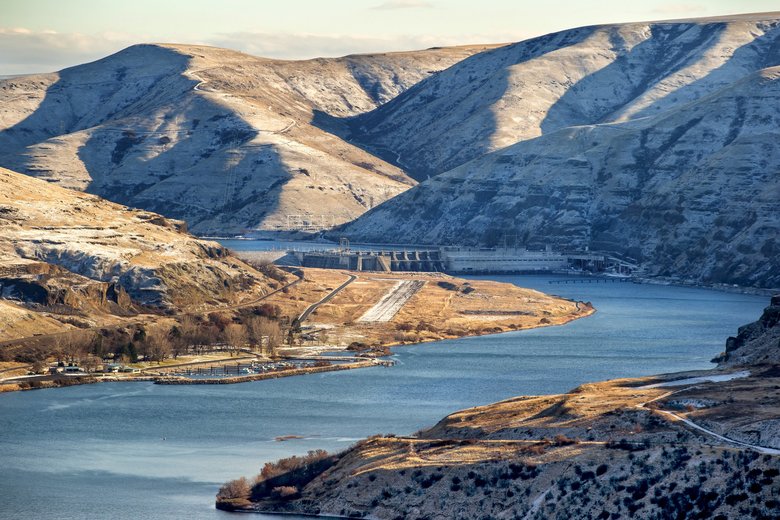forum
library
tutorial
contact

Restore the Snake River?
Stakeholder Talks Are the Right Next Step
by Sam Mace
Seattle Times, April 16, 2019
|
the film forum library tutorial contact |

|
Restore the Snake River?
by Sam Mace
|
 Fishermen and other stakeholders applauded when the Washington state Senate recently passed a budget funding a stakeholder process to examine the economic and social impacts of removing four lower Snake River dams that have devastated salmon populations and played a major role in bringing southern resident orca to the brink of extinction.
Fishermen and other stakeholders applauded when the Washington state Senate recently passed a budget funding a stakeholder process to examine the economic and social impacts of removing four lower Snake River dams that have devastated salmon populations and played a major role in bringing southern resident orca to the brink of extinction.
Unfortunately, the House budget did not include this vital funding. It would be a terrible mistake to cut support for this important forum designed to understand and protect the interests of people in the Columbia and Snake river basins, and tribal and coastal fishing communities.
Some legislators oppose stakeholder discussions for reasons captured in Seattle Times reporter Ron Judd's article ["Breaching Snake River dams could save salmon and orcas, but destroy livelihoods," March 24, PacificNW magazine], which claimed that the interests of Eastern Washington were overlooked by those from outside the region and that removing the Snake River dams could destroy livelihoods. It implored readers to "understand the stakes."
That last phrase -- "understand the stakes" -- is ironic because the proposed stakeholder process would do just that.
I grew up in a rural coastal fishing town but have called Eastern Washington home for 25 years. My hometown experienced fishing and logging declines and the resulting economic and social upheaval. At times, interests were pitted against each other to the detriment of all. Mr. Judd repeats that mistake. His simplistic narrative needlessly pits fisher against farmer.
Many people in the Inland Northwest support restoring a free-flowing river. Some haven't made up their minds but welcome an honest discussion to better understand the costs and benefits. And yes, some oppose.
Since the decision to retain or remove the dams will be made by federal agencies, it's incumbent upon the state to convene a forum with affected stakeholders to make sure citizen input is gathered and planning begins to inform a federal environmental review now under way.
So why do Judd and the people he chose to quote oppose funding for a project that would make that happen? Because they think the stakeholder process is something different. Judd derides it as "a study widely seen as a means to justify dam breaching."
This is simply not true.
Yes, Columbia wild salmon and orcas are at a crisis point. Fishery managers predict another year of devastating wild fish runs, with 2019 Snake River spring and summer Chinook returns anticipated to be just half of what we saw in 2018. At the same time, only 75 southern resident orca remain, with many worried this could be the "last generation" of these iconic animals.
Whale researchers recognize how critical Columbia-Snake River spring Chinook runs are to hungry orcas in winter and early spring when other salmon are especially scarce. In fact, in 2008 National Oceanic and Atmospheric Administration Fisheries noted that "perhaps the single greatest change in food availability for resident killer whales since the late 1800s has been the decline of salmon in the Columbia River basin."
If biological urgency alone doesn't put the dams on the table, declining barge traffic, the availability of cheaper clean energy resources and the growing costs of four aging dams could tilt the federal government in favor of removal.
In that case, everyone should agree that solutions would be needed to replace benefits provided by the dams today. The stakeholder process would identify those needs and formulate solutions. Plus, it would explore ways for the region to take advantage of and invest in a restored river and fisheries if the dams are removed.
Fishing, hunting and other recreation devastated by the dams would be restored. Tribal and nontribal fishing communities of which Judd's article made little mention would be revived. Building new infrastructure to meet irrigation and transportation needs of farmers would generate new jobs. And the replacement of electricity generated by the dams with new clean energy resources could create more jobs and new tax revenues locally.
All factors -- both positive and negative -- should be considered. The proposed stakeholder forum would make that happen.
Whether one thinks like I do that restoring the Snake River would greatly benefit Eastern Washington, or one believes the costs are too great, the stakeholder forum is an opportunity to bring people together, explore possible futures and support informed decision-making. It is in the best interest of both fishermen and farmers that the state Legislature support and fund this effort.
learn more on topics covered in the film
see the video
read the script
learn the songs
discussion forum
